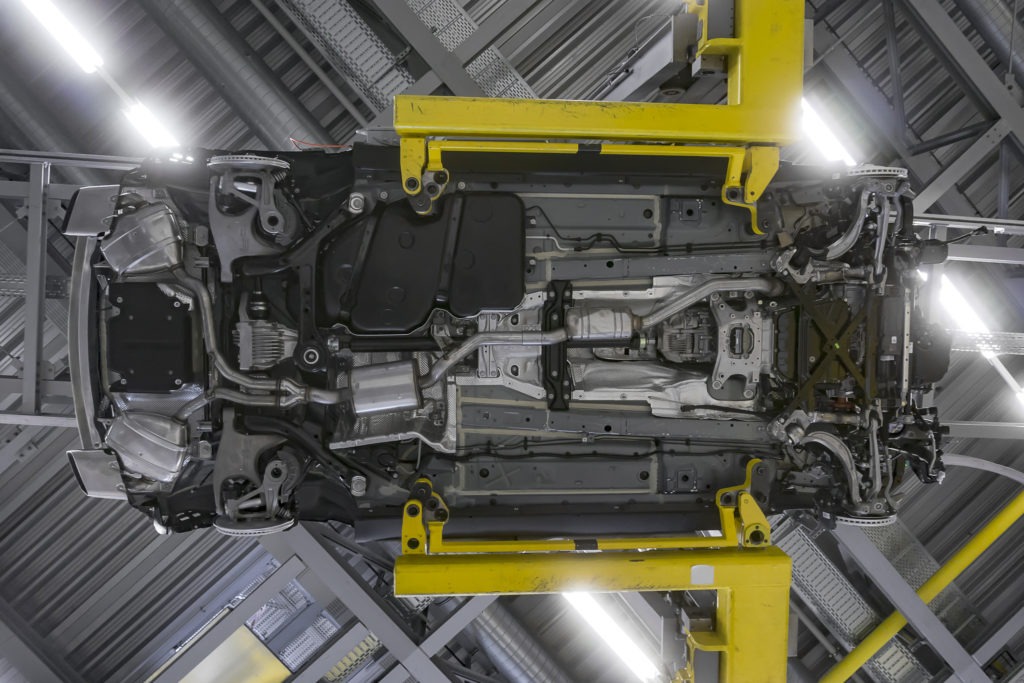JLR and Ford to cut jobs and reorganise business
10 January 2019

10 January 2019
Jaguar Land Rover (JLR) and Ford of Europe have both announced a series of measures aimed at returning businesses to profitability, including job cuts and potential plant closures.
JLR has announced it is moving into the next phase of its ′Charge and Accelerate’ programme, which aims to deliver £2.5 billion (€2.8 billion) in cost reductions over 18 months. As part of this, it will reduce its global workforce by around 4,500 people, in addition to the 1,500 who left the business last year.
The company says that the next phase of this transformation programme will begin with a voluntary redundancy programme in the UK. This strategic review will create a leaner, more resilient organisation with a flatter management structure.
′We are taking decisive action to help deliver long-term growth, in the face of multiple geopolitical and regulatory disruptions as well as technology challenges facing the automotive industry,’ says Ralf Speth, CEO of JLR. ′The ′Charge and Accelerate’ programme combines efficiency measures with targeted investment, safeguarding our future and ensuring that we maximise the opportunities created by growing demand for Autonomous, Connected, Electric and Shared technologies.’
The company has been hit by a slowdown of sales in China, the collapse of the diesel market – which accounts for 90% of the group’s sales – and concerns over Brexit. This led owner Tata to implement its plan, which has identified over £1 billion (€1.1 billion) of improvements, with more than £500 million (€554 million) already realised in 2018
In its release, JLR also announced that from later this year, next-generation Electric Drive Units (EDU) would be produced at the company’s Engine Manufacturing Centre in Wolverhampton. These EDUs will be powered by batteries assembled at a new Jaguar Land Rover Battery Assembly Centre located at Hams Hall, North Warwickshire, reinforcing the company’s commitment to the West Midlands and the UK.
Ford cuts
Meanwhile, Ford has said it is starting consultations with union partners and other key stakeholders to implement what it calls a comprehensive transformation strategy aimed at strengthening the brand and creating a sustainably profitable business in Europe.
The company will look to reduce its model range, improve partnerships with other manufacturers and cut its workforce. It also plans to relocate its Ford UK headquarters from Brentwood to its Research and Development facility in Dunton, Essex.
″We are taking decisive action to transform the Ford business in Europe,″ said Steven Armstrong, group vice president and president, Europe, Middle East and Africa. ″We will invest in the vehicles, services, segments and markets that best support a long-term sustainably profitable business, creating value for all our stakeholders and delivering emotive vehicles to our customers.″
To improve near-term financial performance, Ford will drive improvement in profitability across its product portfolio. This improvement will be driven by reducing the complexity of existing Ford products, optimising the most profitable vehicle configurations, and increasing volumes of profitable vehicle lines.
Structural cost improvements will be supported by the reduction of surplus labour across all functions – salaried and hourly. An improvement in management structure, announced in December, already is underway through Ford’s redesign of its global salaried workforce, that will improve the agility of the organisation.
Ford is establishing three customer-focused business groups in Europe – Commercial Vehicles, Passenger Vehicles, and Imports – each with clearly defined aspirations and dedicated organisations. The new operating model will better enable businesses to make fast decisions centred on customer needs.